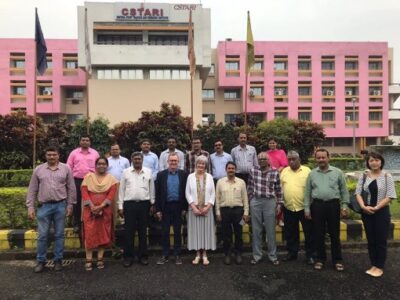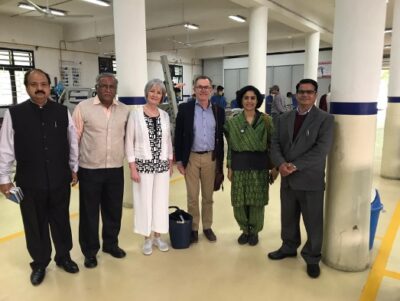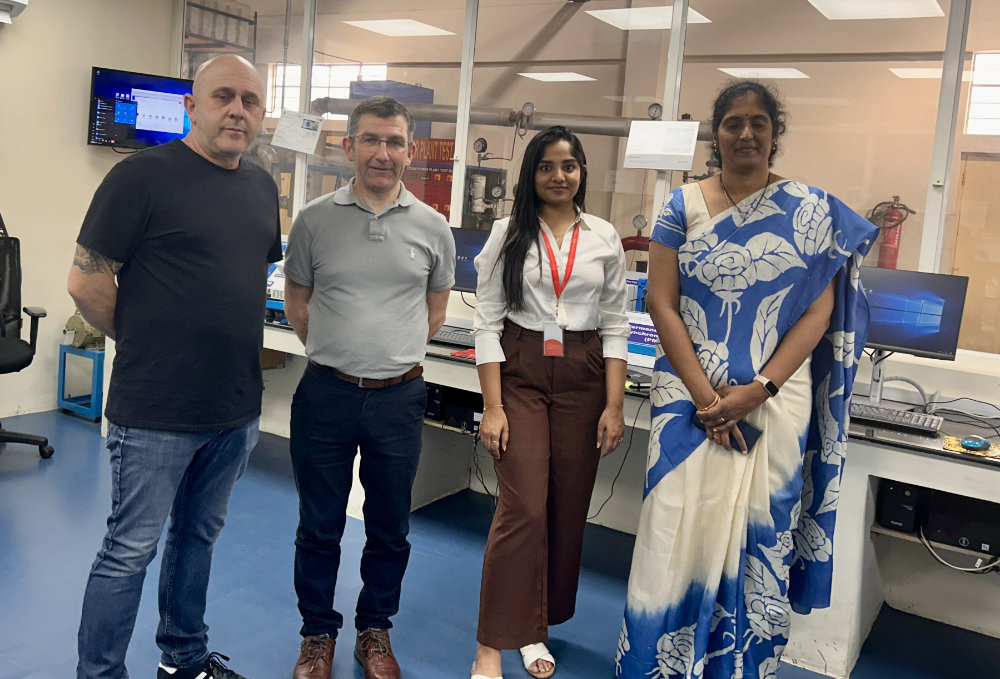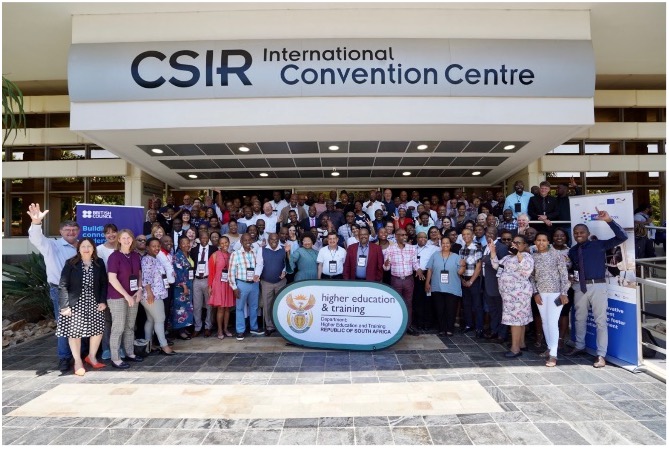
India – Industrial Training Institutes (ITIs)
INDIA: In 2020, Northern Ireland Colleges specialists were appointed by the British Council and World Bank India to undertake a review of curriculum and content development processes in the Industrial Training Institutes (ITIs) sector in India. ITI’s are post-secondary Technical and Vocational Education and Training (TVET) schools in India constituted under Directorate General of Training (DGT), & Ministry of Skill Development and Entrepreneurship (MSDE) offering 1 – 3 year vocational training programmes.
The NI consultancy team undertook field research in India visiting TVET institutes, TVET stakeholders and government bodies across Delhi, Kolkata and Chennai.
Northern Ireland (NI) Colleges is an alliance of six regional Further and Higher Education Colleges, located in Northern Ireland (UK), specialising in Technical and Vocational Education and Training (TVET). Collectively, NI Colleges operate across 40 campuses, resourced by 3,500 professional and technical staff who service some 154,000 annual enrolments. Working alongside a network of 10,000 employers, NI Colleges provides a highly innovative curriculum that ensures learners develop professional and technical skills, increasingly at higher levels, to meet employer needs.
NI Colleges has a successful track record of delivering TVET training and capacity building projects across the globe with 250 international partnerships and over 60 “live” annual projects. It sends 600 students and 220 staff on mobility each year and welcome over 420 visitors to learn, share best practices and explore the cultural aspects of life in Northern Ireland, UK.
The 6 colleges that make up Northern Ireland Colleges are:
The rationale for this project was to commission specialists in curriculum design who would review and undertake a study that would allow the Directorate General of Training (DGT) to strengthen curriculum and content development processes led by government nodal bodies – Central Staff Training and Research Institute (CSTARI) and National Instructional Media Institute (NIMI) through validation with international best practices.
This would support DGT to reform its existing implementation frameworks for developing teaching-learning resources, curricula development and assessment, introduce Information and Communication Technology (ICT) based solutions for blended learning and effectively engage private sector partners for ITI training.
The NI consultancy team undertook field research in India visiting TVET institutes, stakeholders and government bodies across Delhi, Kolkata and Chennai. This included undertaking primary research and consultation with World Bank, Directorate General of Training, the Central Staff Training and Research Institute (CSTARI) , National Instructional Media Institute (NIMI) and a sample of Industrial Training Institutes.
The team were required to review processes for the development of the existing curriculum, courses and instructional materials which are led by government bodies – CSTARI and NIMI. The specific focus was to scrutinise two areas; the Craftsmen Training Scheme (CTS) and Craft Instructor Training Scheme (CITS). CTS programmes fall under two categories – Engineering or Non-Engineering and are delivered over a one or two year period.
The Craftsman Instructor Training Scheme is the main qualification required by individuals who wish to teach within an ITI. The research focused on identifying strengths and areas of development based on international experiences and best practices.
The team also facilitated relevant workshops with stakeholders to strengthen and validate findings from the study, and collaboratively develop a feasible and practical implementation plan of action based on the recommendations from the study.
The solutions recommended focused on a number of priorities including; develop a more industry facing approach to curriculum design and review, effectively engaging with ITI instructors who can feedback on the quality and standard of the curriculum and teaching resources developed, encouraging student involvement and improving compliance and standardisation across all 13,000 ITIs.
This project was an important step towards building the systematic capacity of India’s skills sector in developing curriculum and content that is relevant to all stakeholders including industry players and the students who are end beneficiaries. Following the field research, Northern Ireland Colleges produced a practical three-year action plan, identifying areas of improvement and specific actions based on the recommendations from the study.
This has supported the Directorate General of Training, their vocational education bodies (CSTARI & NIMI) and the Industrial Training Institutes themselves reform their implementation frameworks, specifically in the context of curriculum design, delivery and assessment.









